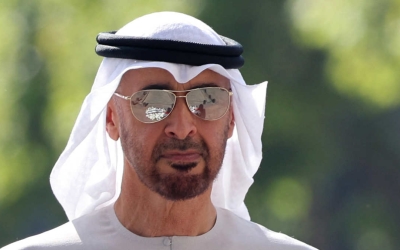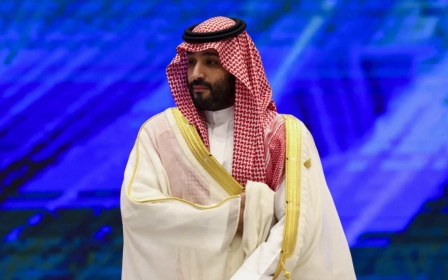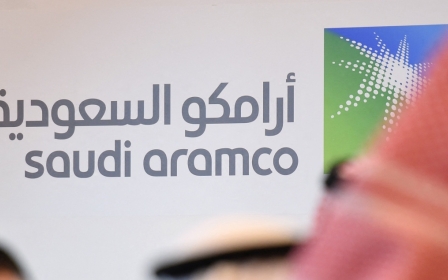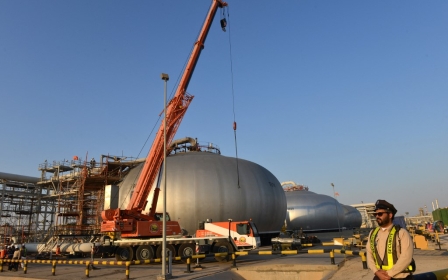Saudi Arabia eyes $50bn Aramco listing as oil exports plummet
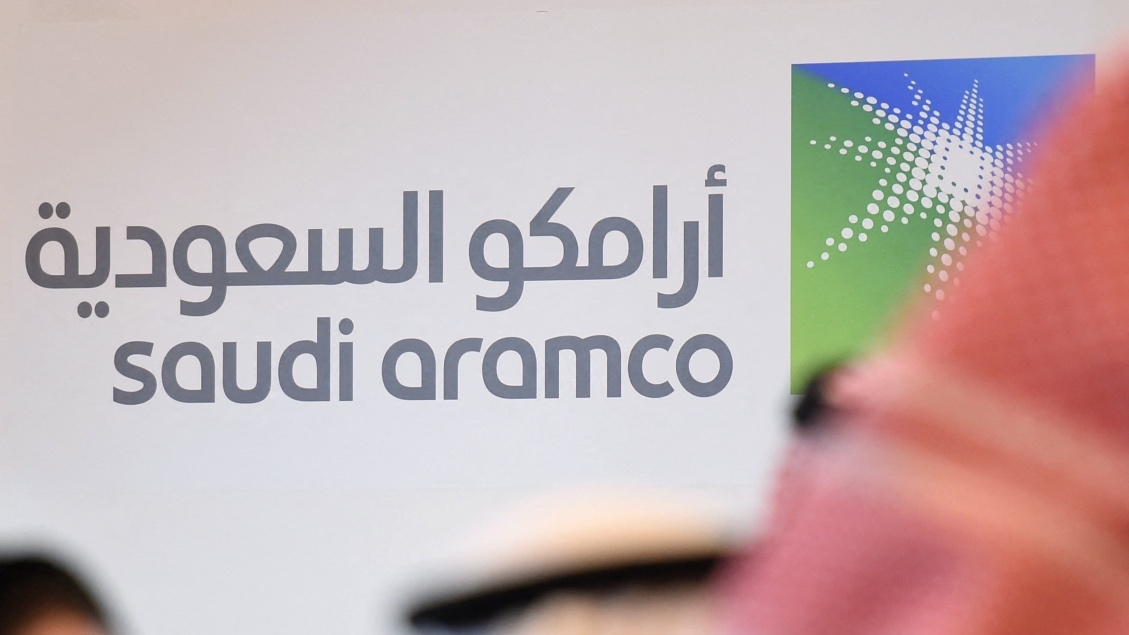
Saudi Arabia is considering offering $50bn worth of shares in its state-owned oil company, Aramco, on the country's stock market, in what would be the largest public stock offering in history, amid sagging crude exports.
The shares would be sold on the Tadawul, the Saudi stock exchange, according to the Wall Street Journal. The kingdom is feeling out interest from big investors, but deliberations are still in their early stages. Aramco already set the record for the world's largest initial public offering in 2019 when it sold $29.4bn worth of stock.
The stock offering would provide Saudi Arabia with a huge injection of cash as it looks to plow funds into mega-projects like Neom and Red Sea island developments, designed to wean the kingdom's economy off of long-term fossil fuel dependency.
Saudi Arabia enjoyed an oil revenue windfall after crude prices jumped to more than $100 a barrel in the wake of Russia's February 2022 invasion of Ukraine. However, they retreated about 40 percent the following year amid concerns about the health of the global economy.
In a bid to support prices, Riyadh corralled members of the Organisation of the Petroleum Exporting Countries (Opec) and an alliance of oil producers led by Russia, called Opec+, to slash production.
New MEE newsletter: Jerusalem Dispatch
Sign up to get the latest insights and analysis on Israel-Palestine, alongside Turkey Unpacked and other MEE newsletters
The kingdom led the way, instituting a series of unilateral production cuts starting in October. At an Opec+ meeting in July, Saudi Arabia extended its one million barrels of oil a day production cut into September.
For its part, Brent crude, the international benchmark, has rallied. On Friday it was trading at $88.26 a barrel.
But analysts say that Riyadh has been bearing the brunt of cuts. By restricting exports, it hasn't enjoyed the same rise in prices as other Opec+ members.
Saudi oil sales to China hit pandemic-era lows
In a sign of the toll the unilateral cuts have had on Saudi Arabia, Bloomberg reported on Friday that the kingdom's oil exports hit a two-and-a-half-year low in August, standing at 5.6 million barrels a day (bpd) compared to 6.3 million bpd in July.
Saudi Arabia has gone to pains to demonstrate unity within Opec+ as it looks to push back on any narrative that fissures are erupting within the cartel over production policy.
But analysts previously told MEE that the alliance is wracked by a number of fissures. As Saudi Arabia cuts production, Russia has been muscling in on its traditional Asian markets by offering crude at discounted prices in order to fund its invasion of Ukraine.
According to Bloomberg, Saudi Arabia's oil sales to China - its top export market - stood at just 1.3 million bpd in August, the lowest recorded since June 2020 when the coronavirus pandemic brought global travel to a standstill.
Meanwhile, Saudi Arabia's management of Opec+, where the kingdom's combative energy minister Prince Abdulaziz bin Salman warned speculators they would be "ouching like hell" if they doubted his willingness to choke global energy supplies, has riled the UAE.
Abu Dhabi and Riyadh have been aligned on some of the Middle East's thorniest geopolitical issues, but more recently have fallen out in a battle for influence in the region.
In a June Opec+ meeting, the UAE pulled off a long-term goal of increasing the amount of crude it is allowed to pump, while Saudi Arabia committed to extending its one million bpd production cut into September.
Viktor Katona, the head of crude analysis at Kpler, an energy consulting firm, previously told MEE that Saudi Arabia was "doing all the work" as the UAE benefitted from rising prices, calling Abu Dhabi "the big winner" in Opec+.
Middle East Eye delivers independent and unrivalled coverage and analysis of the Middle East, North Africa and beyond. To learn more about republishing this content and the associated fees, please fill out this form. More about MEE can be found here.


